
Chihiro Onitsuka is a Japanese singer-songwriter.
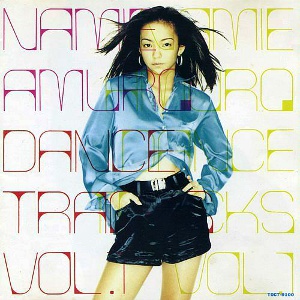
Dance Tracks Vol.1 is Namie Amuro's debut studio album and only release through Toshiba-EMI. Nine days after Dance Tracks Vol.1 hit stores, she released her first single with Avex Trax, "Body Feels Exit" on 25 October 1995. The album reached the top position on the Oricon charts and charted for forty-four weeks.
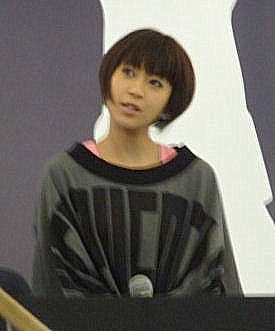
The discography of Japanese-American R&B and pop singer Hikaru Utada consists of eleven studio albums, three compilation albums, eleven video albums and numerous singles and promotional singles. Utada began as a musician in the early 1990s as a member of U3, a family unit made up of her, her mother Junko Utada, also known as 1970s enka singer Keiko Fuji, and her father, musical producer Teruzane Utada. U3 released their debut album Star in 1993, with the hope to debut in America. In 1996, the group was rebranded as Cubic U, an R&B project focusing on Hikaru Utada, resulting in the English language album Precious in 1998 with record label Toshiba EMI.
The discography of Japanese pop singer Koda Kumi includes 17 studio albums, 2 cover albums, 10 compilation albums, 10 remix albums, 9 live albums and 57 singles. All of her Japanese musical releases have been with Rhythm Zone, a sub-label of Avex Group.

Love or Nothing is the 22nd studio album by Japanese singer-songwriter Miyuki Nakajima, released in October 1994.

Timeless is the first full album by Japanese rock band Uverworld. The album was released on February 15, 2006. The album entered the Oricon charts 33 times and it was ranked 5th at its peak. The album was certified gold by the Recording Industry Association of Japan.

A Collection of His Greatest Hits is a compilation album by the American recording artist Babyface, released in 2000.
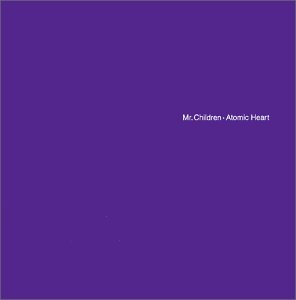
Atomic Heart is the fourth studio album by Japanese rock band Mr. Children, released in September 1994. The album features two successful lead singles "Cross Road" and "Innocent World".

Insomnia is the debut album by Japanese singer-songwriter Chihiro Onitsuka, released in March 2001. The album features acoustic-oriented production arranged by Takefumi Haketa, who produced all her studio albums released under the Virgin Tokyo label distributed by Toshiba EMI. It comprises 11 tracks written by Onitsuka, including hit singles "Cage", "Edge", "Memai", and her most well-known and successful song "Gekkō."

This Armor is the second studio album recorded by Japanese singer-songwriter Chihiro Onitsuka, released in March 2002. It features two lead singles "infection", "Ryūseigun", and remake versions of "Arrow of Pain" and "Little Beat Rifle".

Sugar High is the third studio album by Japanese singer-songwriter Chihiro Onitsuka, released in December 2002.
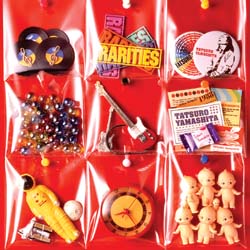
Rarities is the compilation album by a Japanese singer-songwriter Tatsuro Yamashita, released in October 2002. The album is mainly composed of the songs which had initially appeared on B-sides of his previous singles and not included on any albums.

Wakana Ootaki, who goes by the mononymous stage name Wakana, is a Japanese pop singer. She was one of the vocalists of the FictionJunction project started by Yuki Kajiura, and was a core member of the vocal group Kalafina. She is currently signed with Victor Entertainment with a solo career, having released two albums and an EP that have charted on Oricon.
The discography of M-Flo features nine studio albums, nine compilation albums, one live album and 25 singles. These were released on Labsoul Records and Avex Group independent label Rhythm Republic in 1998, and from 1999 onwards released through Rhythm Zone.
The discography of Tokyo Jihen consists of five studio albums, three compilation albums, one regular release extended play and three vinyl exclusive extended plays and 13 video releases, released through Toshiba EMI, EMI Music Japan and Universal between 2004 and 2013.
The discography of Chihiro Onitsuka consists of six studio albums, one cover album, five compilation albums, 20 singles and seven video albums. These were released under Toshiba EMI between 2000 and 2003, Universal Music Japan from 2004 to 2010, For Life Music Entertainment from 2011 to 2012, and on her personal record label, Napoleon Records, from 2013.
The music for the Drakengard series, known as Drag-On Dragoon in Japan, has been handled by multiple composers since the release of the original game in 2004. Drakengard's composers were Nobuyoshi Sano and Takayuki Aihara, Drakengard 2 was handled by Ryoki Matsumoto and Aoi Yoshiki, and Drakengard 3 was composed for by Keiichi Okabe, the composer for series spin-off Nier. Sano remained as a sound director for the second game, and his music was used as a reference for the third. Multiple albums have been released for the music of the series: Drag-On Dragoon Original Soundtrack Vol.1 and Vol.2 were released on October and November 2004, while a two-disc re-release titled Drag-On Dragoon Original Soundtrack was released in April 2011. The Drag-On Dragoon 2 Original Soundtrack was released on July 20, 2005. A promotional disc with two tracks from the soundtrack was released in the same year. The official soundtrack for the third game, Drag-On Dragoon 3 Original Soundtrack, was released January 21, 2014. A compilation of chiptune remixes of the previous games and Nier, Drag-On Dragoon Chips Music, was released on December 19, 2013 as part of the Drag-On Dragoon 10 Anniversary Box.
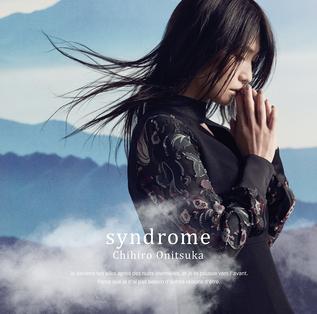
"Syndrome" is the seventh studio album by Japanese singer songwriter Chihiro Onitsuka. It was released on February 1, 2017 by Victor Entertainment. The album is considered to represent her revival in popularity from her slump.

"Gekkō" is a song by Japanese singer-songwriter Chihiro Onitsuka from her debut album Insomnia (2000). It was released on August 9, 2000 as the album's second single. The song is mostly known for serving as a theme song to the Japanese television drama series Trick. The single peaked at number eleven on the Oricon Weekly Singles chart and remains as Onitsuka's best-selling single.

Legend – Metal Galaxy is the ninth live video album by Japanese heavy metal band Babymetal. The video contains footage from a pair of performances at Makuhari Messe in January 2020 as part of the Metal Galaxy World Tour, and was released on September 9, 2020 in Japan by BMD Fox Records and Toy's Factory. A pair of live albums were also released the same day, being available through streaming platforms and digital download internationally.















